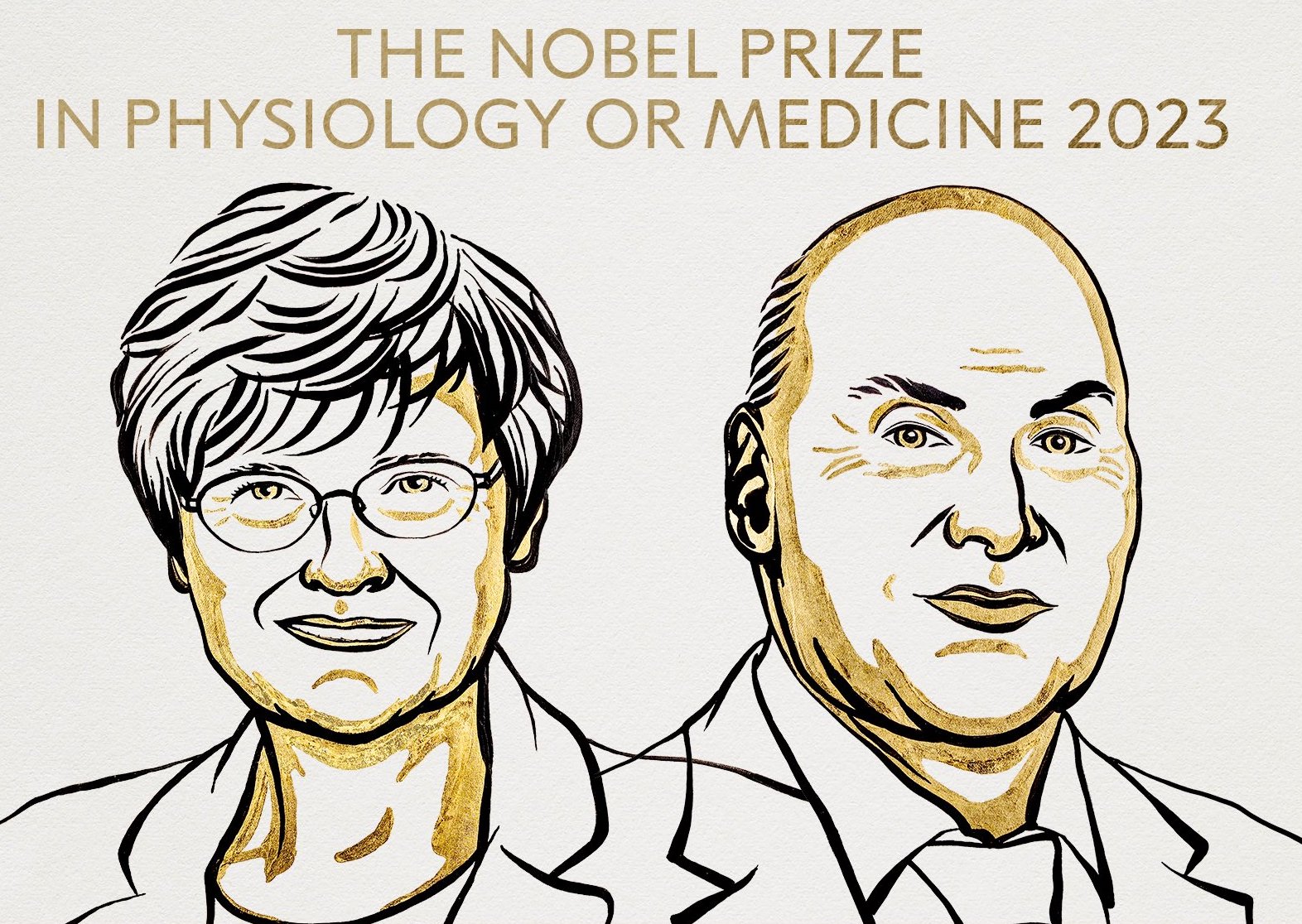Who they are and what the 2023 Nobel Prize winners in Medicine have discovered

The week dedicated to the Nobel Prizes has begun and the week dedicated to Medicine opened the ball. This year the recipients were the Hungarian Katalin Karikó and the American Drew Weissman. Their discoveries have enabled the development of effective mRNA vaccines against Covid-19. All the details
“The discoveries of the two Nobel Prize winners were fundamental to the development of effective mRNA vaccines against Covid-19 during the pandemic that began in early 2020. Thanks to their groundbreaking discoveries, which have radically changed our understanding of how mRNA interacts with our immune system, the two honorees have contributed to the unprecedented pace of vaccine development during one of the greatest threats to human health in modern times.” With these words, Hungarian researcher Katalin Karikó and her American colleague Drew Weissman received the 2023 Nobel Prize for Medicine today in Stockholm.
THE MOTIVATION
The Nobel Assembly of the Karolinska Institutet has decided to award the 2023 Nobel Prize for Medicine to Karikó and Weissman "for their discoveries on modifications of nucleoside bases that have allowed the development of effective mRNA-based vaccines against Covid-19" .
“The approval of two effective and safe mRNA vaccines against Covid-19 in late 2020 pushed the field of mRNA vaccines into a new era. The discovery that the use of modified bases in mRNA transcribed 'in vitro' circumvents unwanted inflammatory responses and increases protein production after 'delivery in vivo' demonstrates the value of basic research. The results published by Karikó and Weissman in their seminal 2005 paper received little attention at the time, but they laid the foundation for critically important developments that have served humanity well during the Covid-19 pandemic,” the explanation reads. published on the Nobel website, which highlights how “the widespread use of the two mRNA Covid-19 vaccines in recent years demonstrates the significant potential of this technology and shows that serious adverse effects of the two authorized mRNA vaccines were exceptionally rare, providing a solid foundation for future applications."
Among the possible future applications cited are vaccines against infections and cancer .
WHO IS KATALIN KARIKÓ
Born in Hungary in 1955 – the year of the Warsaw Pact (which linked the USSR and satellite countries to a military alliance of mutual assistance as a reaction to the rearmament and entry into NATO of the Federal Republic of Germany in May of the same year) – Karikó, after being fired from the Szeged Biological Research Center where he was continuing the studies on therapeutic mRNA undertaken at the University of Szeged, received an offer for a position at Temple University in Pennsylvania at the age of thirty.
However, with the Berlin Wall still dividing Germany – and the world – it was not easy to leave the country and it was not even possible to take cash outside the borders. So to get to America, Karikó and her husband, an engineer, sold their car on the black market for $1,200 and sewed the money into their two-year-old daughter Susan's teddy bear. After five years at Temple University, the scientist joined the University of Pennsylvania as a professor in 1990, where she immediately began applying for grants for her mRNA studies, but were repeatedly denied.
But her tenacity and obstinacy, despite having been exiled to the fringes of the scientific world, and a chance meeting in front of a photocopier at the University of Pennsylvania in 1998 with the immunologist Weissman led to her receiving job offers at Moderna and BioNTech . In 2014, writes the New York Post , he opted for the latter of which he is now senior vice president, preferring its CEO Ugur Sahin and his wife, Özlem Türeci, "to the controversial CEO of Moderna, Bancel".
According to the newspaper, Karikó said that Bancel's collaborators told her that if she signed with Moderna, she could be fired in an instant and would not be able to work at a competing company for two years.
WHO IS DREW WEISSMAN
Weissman, who received the Nobel news from Karikó because the Nobel Prize committee did not have his phone number, is an immunologist specializing in dendritic cells, which play important functions in activating vaccine-induced immune responses. The two scientists, considered among the favorites for the prestigious prize, in their ten-year scientific collaboration discovered how to chemically modify mRNA, transforming basic biology into a technology ready to change the world when the pandemic broke out.
Before today they had already won prestigious prizes, including the Lasker Prize, often considered a precursor to the Nobel.
HOW MUCH IS A NOBEL WORTH
The prizes include a cash award of 11 million Swedish crowns (approximately 951 thousand euros). The money comes from a bequest from the creator of the prize, the Swedish inventor Alfred Nobel, who died in 1896. This year the prize was increased by 1 million crowns (about 86 thousand euros) due to the collapse in the value of the Swedish currency .
After today's Nobel for Medicine, the Nobel for Physics will follow tomorrow, Wednesday for Chemistry, Thursday for Literature and Sunday the one for Peace – the only one to be awarded in Oslo instead of Stockholm, according to Nobel's wishes. The winner of the Economics prize will be named on Monday 9 October.
The ceremony will take place on December 10, the anniversary of Nobel's death.
This is a machine translation from Italian language of a post published on Start Magazine at the URL https://www.startmag.it/sanita/chi-sono-e-cosa-hanno-scoperto-i-nobel-per-la-medicina-2023/ on Mon, 02 Oct 2023 14:34:46 +0000.
